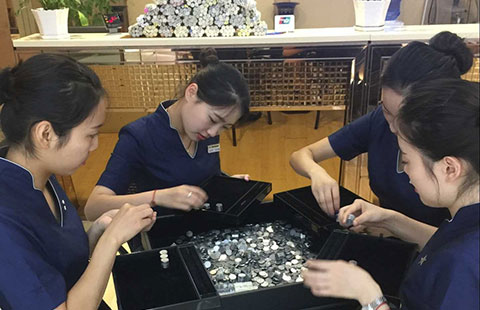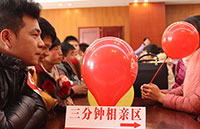Spacecraft launch to set new records
By Xin Dingding in Jiuquan, Gansu (China Daily) Updated: 2012-06-14 02:40The impending launch of the manned Shenzhou IX spacecraft will be the first time that China's astronauts will stay in space for more than 10 days, said Cui Jijun, chief commander of the country's first space docking mission's launch site system, on Wednesday.
The previous record is five days, set by the Shenzhou VI spacecraft in 2005.
The mission will also complete the country's first manned space docking to master the necessary technology for assembling a space station, see China's first female astronaut in space and have astronauts entering a space lab module for the first time, he added.
It is also the first time for the Jiuquan Satellite Launch Center, located in a desert, to conduct a mission in the summer.
The past nine launches of China's manned space program were held in the spring, autumn and winter, but not summer. The three manned spacecraft all blasted off in autumn.
The Shenzhou V spacecraft carrying China's first astronaut Yang Liwei lifted off on Oct 15, 2003, followed by Shenzhou VI with two astronauts on Oct 12, 2005, and Shenzhou VII with three astronauts on Sept 25, 2008.
"The high temperature of the summer poses a challenge for us to guarantee the stability of propellant, especially if the launch is to be delayed," Cui said.
On Tuesday, a local meteorological observation said the temperature at the launch center reached 36 C. The temperature in places without shade was even higher.
In order to guarantee the mission's success, the launch center has updated its facilities. Experts also drafted plans on how to best store the propellant on hot days and how to unload the propellant safely in emergencies, Cui said.
Launching the spacecraft in the summer isn't a bad idea, as Jiuquan has strong winds in the spring and is too cold in the winter, he said.
"There is a saying describing the windy spring here — Winds come only twice a year, but each time it goes on for half a year," he said.
In the winter, the temperature in Jiuquan sometimes drops below -20 C, while the requirement for space launches is between -20 C and 40 C, he said.
Though some worry that a thunderstorm could hamper space launches in the summer, Cui said that the Jiuquan launch center has far fewer thunderstorms than other launch centers in China, and that stormy weather isn't a concern.
So far, the manned space program has yet to officially announce the launch window, but the preset date for launch in mid-June is forecast to have good weather, according to Zhang Daochang, deputy chief commander of the mission's launch site system.
Zhang cited the weather forecast as saying that the strong wind blowing sand in the air will subside by Thursday. The weather between Thursday and Saturday will be good, with "only a weak cold air front".
- 10-year report reveals habits of Chinese online shoppers
- State Council sessions provide key clues to future
- Natural reserves to protect rare plants
- Rules enacted to protect lawyers' role
- Chinese courts go digital
- Holy war scam exposed as Uygurs are sent home
- China asks further investigation on MH370
- Corrupt officials become regulators' target in bid to make food safer
- Companies, officials punished for failure to control pollution
- Volunteers work to make the capital safer







